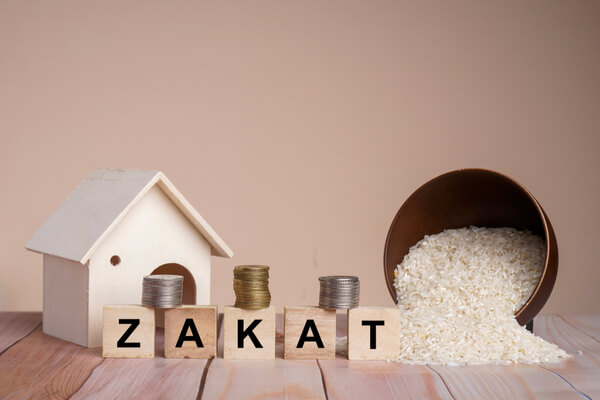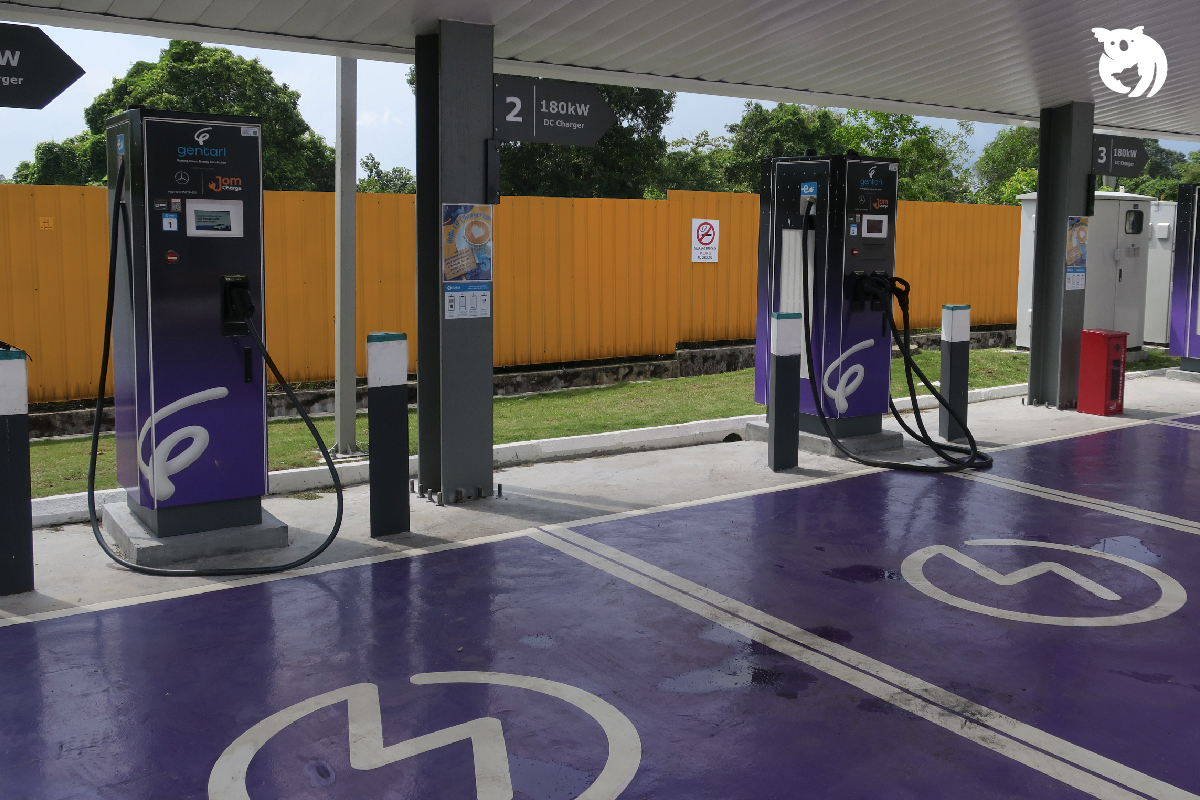Islamic Banking, what is the meaning and true concept of Islamic Banking? Islamic Banking has been introduced in Malaysia for a long time. However, many are still confused and unfamiliar with the concept used by Islamic banks. Don’t worry, Qoala will share all the information you need to know about Islamic Banking today.
The History of Islamic Banking in Malaysia
Malaysia is one of the countries that is familiar with the concept and practice of Islamic banking. Islamic banking in Malaysia has been recognized worldwide. The Islamic financial industry began in Malaysia in 1963 with the establishment of the Pilgrims Management and Fund Board (Tabung Haji). In 1983, Bank Islam was established, followed by the establishment of other commercial banks in 1993.
At that time, the Islamic financial industry was developing rapidly. Bank Negara Malaysia decided to establish the National Shariah Advisory Council for Islamic Banking on May 1, 1997. The industry grew even faster in 2004 when the government allowed foreign and international banks to carry out their Islamic banking products and services in Malaysia.
Islamic Banking in General
In general, Islamic banking is a banking system that complies with Islamic law, which is based on shariah law.
Why Was Islamic Banking Introduced?
Islamic Banking was established with the main objective of providing an alternative in banking services to Muslims. This is because before Islamic banking was introduced, Muslims only had one option, which was conventional banking.
The Islamic financial system was also established to promote and enhance Islamic finance and economics in the world of banking.
This banking system complies with the Shariah laws that have been established in the Quran and Hadith, in terms of transactions that are allowed in Islam, which is known as fiqh muamalat.
Among the basic principles followed by Islamic banking are:
- Interest rates that lead to Riba are prohibited;
- Products and services must be Halal and comply with Shariah;
- Products and services cannot include elements of Haram, Riba, Gharar, Zulm, Ikhtikar and Maisir.

Elements that are Prohibited in Islamic Banking
The Islamic financial industry does not offer products and services that contain prohibited elements such as:
Riba
Riba, also known as interest, is prohibited in Islam. This means that any business or system that adheres to Islamic Shariah cannot involve any transaction that has elements of Riba. In this context, Riba refers to interest charges.
Some questions may arise:
“How does the Islamic finance industry make a profit if there are no interest charges imposed?”
“Why should I pay more for a loan if there are no interest charges imposed?”
Islamic Banking System uses several equity participation concepts, or profit-sharing for their products. For example, if you open a savings account, the profit received from the account will be shared between you and the bank and given as dividends or gifts (hibah).
For Islamic loans, Islamic financial institutions use several Shariah principles that avoid Riba, such as Gharar, Zulm, Ikhtikar, and Maisir.
Gharar
What is Gharar? Gharar is a broad concept that cannot be specifically defined. Scholars also have a definitive statement that Gharar is generally something unknown or uncertainty that can cause doubt.
However, scholars also believe that not all sales and purchases with elements of Gharar are prohibited. As previously explained, the context of Gharar is very broad and complex.
Zulm
Zulm refers to oppression or cruel activities committed by humans. Since Zulm is prohibited in Islam, this behavior should also be avoided in the Islamic Banking System.
Maisir
Next is Maisir. Maisir is an activity that involves elements of gambling. This means that a competition or bet between two parties will result in losses for one party.
It is more specific than Qimar. Qimar is more general and includes all forms of betting, while Maisir is more about betting that clearly involves luck and skill.
Gambling is one activity that is completely prohibited in Islam. Therefore, the concept of Islamic banking will avoid activities, products, and services that have elements of Maysir/Maisir.
The Differences between Islamic and Conventional Banking
Many are still confused about the differences between Islamic and Conventional Banking. Although they seem similar at first glance, these two systems have significant differences.
Differences between Islamic and Conventional Banking from a Principle Perspective Islamic Banking
Islamic Banking
As we know, the main principle emphasized in Islamic banking is the absence of usury. This means that all products and services offered must be free of haram elements such as Riba, Gharar, Zulm, Ikhtikar, and Maisir.
In general, the main basis of Islamic banking, in brief, is a business conducted based on Islamic faith and piety, taking into account rewards and punishments and seeking God’s satisfaction in every transaction carried out.
Conventional Banking
Conventional banking is a business based on maximizing profits. There is no faith, rewards, or punishments, and conventional banking business does not need to seek Allah’s satisfaction in its transactions.
However, this does not mean that the conventional banking system is bad. It’s just that the differences in principles between Islamic and conventional banking are significant when compared.
Islamic Banking vs. Conventional Banking: Operations and Administration
When principles are different, it goes without saying that the methods of operation, management, and administration are also different. Here are the differences:
Monitoring
The Shariah Advisory Committee and Shariah Audit Committee are responsible for monitoring all matters in Islamic banking to ensure that all products and services offered comply with the principles of Islamic Shariah.
In contrast, conventional banking does not have a body established for monitoring, and it does not need to comply with Shariah law in its operations, products, and services offered.
Contracts and Transactions
Contracts and transactions are essential activities in any financial system. For Islamic banking, all contracts and transactions must comply with Islamic Shariah principles, which have principles such as Wadi’ah, Wakalah, Tawarruq, and others.
What is Wadi’ah, Wakalah, and Tawarruq?
Wadi’ah: Wadi’ah is a concept used in savings account products, trust services, and safe deposit boxes.
This concept allows individuals to deposit funds in the form of cash or any asset with Islamic financial institutions. The financial institution then acts as a custodian or trustee for the funds.
Wakalah: Wakalah, in short, is a contract in which one party delegates or authorizes another party to perform a particular task that complies with Shariah, voluntarily or with a reward.
This concept is widely applied by banks that offer Islamic banking products and services. In this situation, customers appoint the bank as an agent to carry out agreed-upon transactions or services. The bank will then receive a fee of the agreed-upon amount after completing the service.
Tawarruq: Tawarruq is the concept of buying and selling assets through Murabahah or Musawamah from the seller to the buyer. This means that the asset or commodity is sold for cash to a third party to obtain cash.
The Tawarruq concept can be seen when other Islamic banking concepts cannot be used for buying and selling transactions. For example, this concept is widely used for Islamic personal financing and Islamic credit cards.
In contrast, conventional banking does not need to comply with the contracts and agreements found in Islamic banking. It can be said that almost all buying and selling transactions in the conventional banking system involve interest and other elements that are prohibited in Islamic banking.
Profit vs Interest
For customers using Islamic banking systems, they will not be charged interest, also known as “faedah” in Malay. Instead, they will share in the profits generated from transactions that comply with Shariah law.
In contrast, conventional banking charges interest, which is considered riba and is prohibited in Islamic finance principles.
Fines and Penalties
Bank Negara Malaysia (BNM) has set a permitted penalty fee at a rate of one percent of the outstanding amount. This guideline is followed by the Islamic financial system in Malaysia as well as conventional banking.
However, what distinguishes Islamic banking from conventional banking is that even though the penalty fee still follows BNM’s established guidelines, conventional banks still charge additional fees if their customers are late in paying. As a result, this adds a burden to the customers.

Zakat
The Islamic banking system emphasizes the responsibility of paying zakat in line with the obligations of being a Muslim. Conventional banking does not necessarily take into account matters related to contributions and payment of zakat.
Differences in Islamic Banking Products and Conventional Banking Products
At first glance, products offered by Islamic banks and conventional banks may seem similar, but there are actually many differences.
Deposit/Savings Account
Both banking systems offer deposit products such as savings and current accounts.
Islamic deposit: It is based on the concept of Qard contract. Qard is a type of payment with a guarantee. Interestingly, this concept involves the lender lending money to the borrower. The bank will repay the amount to the customer when requested, following the procedures established by the bank. The bank may also provide a gift or “Hibah,” depending on the bank’s discretion.
Conventional deposit: With conventional deposit, customers who have opened an account are promised a certain return for the deposit made. You may wonder how banks can make a profit. Financial institutions that practice conventional banking use the assets or money deposited to carry out any business activities to generate profit. This concept is known as interest, which is a direct return on investment.
To see the differences more clearly, refer to the chart below:
| Islamic Banking System | Conventional Banking System | |
| Product | Savings/Current Account | Savings/Current Account |
| Concept | Qard Contract | Not Applicable |
| Return | Gift or Hibah (Depending on the discretion of the financial institution/bank) | Fixed return (interest guaranteed) |
Financing & Loan
For your information, Islamic loan products do not use the term “loan”. Instead, it uses the term “financing”. This is because, in terms of the concept used, financial institutions do not provide loans to individuals. On the other hand, conventional products use the term “loan” because the concept used is that the borrower borrows money from the lender.
For a clearer understanding, continue reading.
Islamic Financing
As we know, Shariah-compliant financial institutions prohibit riba. Instead, they use financial concepts such as Bai’ Al-Inah and Tawarruq. Through these concepts, the resulting process is a contract of sale and purchase that generates debt.
However, this debt is not from a loan. It is from a sale and purchase transaction. For example, the bank purchases an asset on behalf of the borrower and resells it to the borrower at a profit rate agreed upon by both parties.
Late payment charges are also imposed. It is considered a loss cost from the financing faced by the financial institution or bank because the customer cannot settle their debt.
Conventional Loan
For conventional banking, a loan transaction is a situation where the borrower borrows money from a financial institution or bank. The borrower will also be charged an interest rate on the principal amount to give a profit to the financial institution.
In terms of the amount of the loan that needs to be paid, it can vary according to the Base Lending Rate (BLR). Late payment charges are also imposed, with conventional banks imposing compound interest on the borrower.
Islamic Financing Myths
As we know, in Islamic banking, there is no such thing as an Islamic loan. It is known as financing, not a loan. However, there are various myths still circulating among the public. Here are some of the myths:
Islamic Financing is Only for Muslims
Actually, not only Muslims can use the products and services offered by Islamic banking. Although known as Islamic financing and offered by Islamic banks, this financing product is for all people regardless of religion. However, there are some financial institutions that require that the Islamic financing products they offer can only be used for Shariah-compliant purposes. Therefore, the use of haram purposes such as gambling, alcohol, and so on is not allowed.
Easier Approval Than Conventional
Islamic financing still takes into account factors such as credit score, credit history, applicant risk, and so on to determine whether the application is approved or not. There may be some differences in terms of documents that need to be prepared, but generally, there is almost no difference between Islamic financing and conventional loans in terms of approval.
More Profitable Because No Need to Pay Interest
Islamic financing indeed does not charge an interest rate like conventional loans. However, it still charges a profit-sharing fee or profit rate.
Many Hidden Charges
It is true that there are charges imposed if your financing application is approved. However, charges such as Wakalah fee or agency fee are only around RM30 to RM50 and will be deducted from the approved financing. These charges also do not increase the amount of financing, so the profit rate that needs to be paid does not change.
In conclusion, understanding the difference between Islamic financing and conventional loans is crucial when it comes to choosing the right financial product that suits one’s needs and beliefs. While Islamic financing operates on the principles of Shariah and prohibits the charging of interest, conventional loans are based on interest and compounding interest rates.
It is important to note that both Islamic financing and conventional loans have their own advantages and disadvantages, and it is up to individuals to make an informed decision based on their personal circumstances and beliefs.
Get more information about insurance and takaful on the best car insurance company’s website. Don’t forget that you can buy insurance products on Qoala! That’s all for Qoala’s sharing today. Hopefully, this article has been beneficial to you.

 EN
EN
 MY
MY








